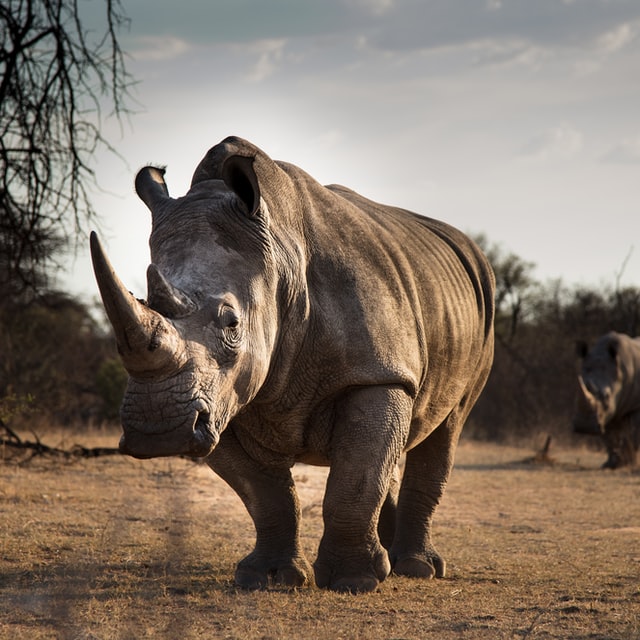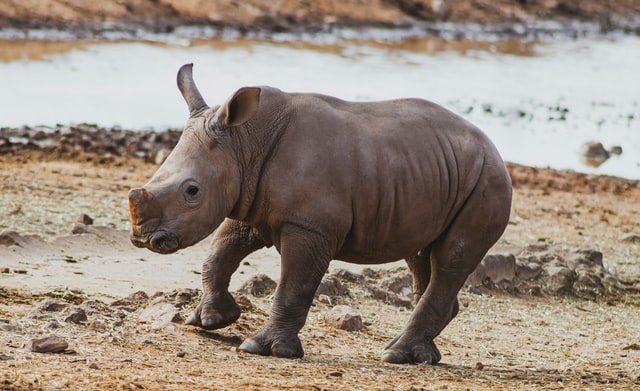
- Inspiring People -
- 6mins -
- 568 views
Rhino poaching in South Africa down by 33% last year
In 2020 South Africa saw the sixth straight year of decline in rhinoceros numbers lost to poaching, however pressure on rhino populations—particularly in Kruger National Park—still remains high.
South Africa saw a decline in rhino poaching during 2020, with the killing of rhino down by 33%
South Africa’s Department of Environment, Forestry and Fisheries report that during the various Lockdown Alert Levels in 2020, the movement of alleged poachers and rhino horn smugglers had been curtailed. Alongside this, the steps to address rhino poaching and wildlife crime across the country had been aligned to both the Integrated Strategic Management of Rhinoceros and the principles set out in the draft National Integrated Strategy to Combat Wildlife Trafficking (NISCWT).
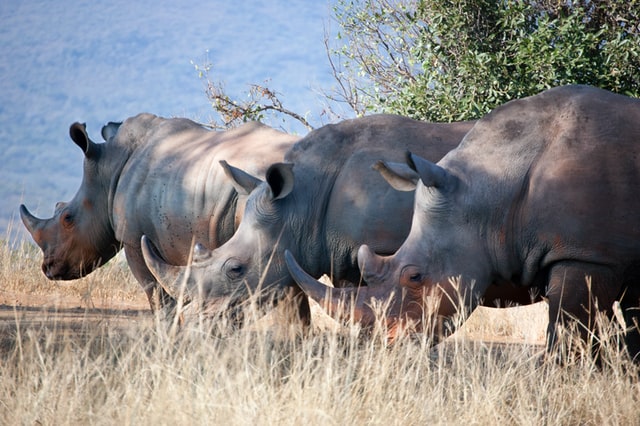
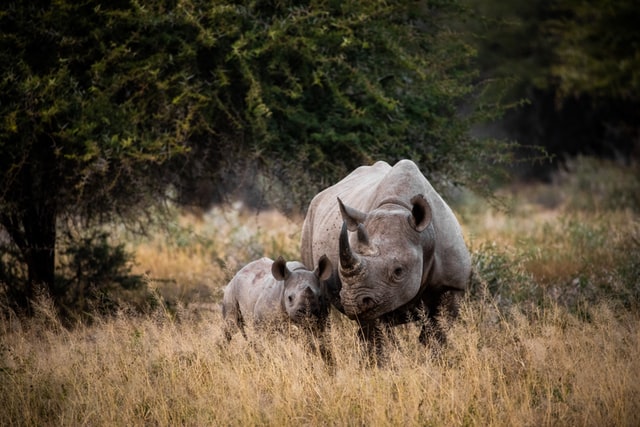
The government are focusing on a more proactive and integrated approach
“While the extraordinary circumstances surrounding the battle to beat the Covid-19 pandemic contributed in part to the decrease in rhino poaching in 2020, the role of rangers and security personnel who remained at their posts, and the additional steps taken by the government to effectively deal with these and related offenses, also played a significant role,” said Environment, Forestry, and Fisheries Minister Barbara Creecy.
After ten years of implementing various strategies to combat rhino poaching by poachers who are recruited and managed by crime syndicates, South Africa has managed to arrest the escalation of rhino losses and has now seen a year on year reduction in the number of poached rhinos.
Whilst this success should be celebrated as a moderate win, the department say they cannot become complacent as the escalating demand in consumer countries ensures a lucrative black market trade and thus relentless pressure on all resources to combat this organised crime.
To move from the current moderate win to a strong win, the department are focusing on a more proactive and integrated approach that builds on existing initiatives and blurs the distinction made between national, provincial, and private parks whilst increasing situational awareness. This Integrated Wildlife Zone approach prevents borders and boundaries from inhibiting planning and implementation to achieve maximum benefit.
Source: environment.gov.za
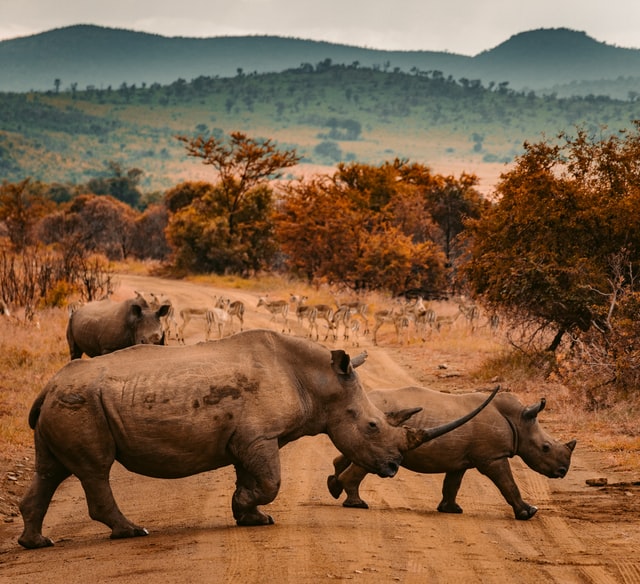
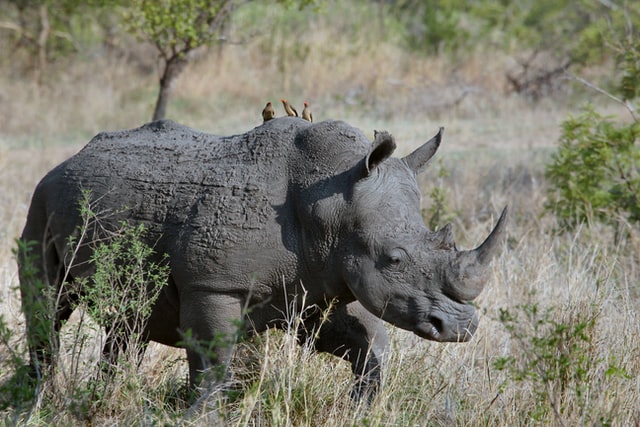
A significant spike in poaching in the KNP was experienced towards the end 2020
During 2020, 394 rhino were poached for their horn in South Africa. This is 33% less than the 594 killed in 2019, and marks the sixth year that rhino poaching has continued to decrease in South Africa.
During 2020 the Kruger National Park (KNP) experienced 1573 poacher activities, a decrease of 21.9% in comparison to the number in 2019 which was 2014. During 2020, 247 rhino were poached for their horns in South African National Parks, 245 in Kruger National Park and 2 in Marakele National Park. A total of 16 elephants were poached for their ivory in the Kruger National Park during 2020, a decrease of 48.39% compared to the 31 killed in South African National Parks (Kruger National Park and Marakele National Park) in 2019.
During the COVID hard lockdown period, the department say they had a significant reduction in poacher incursions into the KNP. However, that changed later in the year as the lockdown levels eased and a significant spike in poaching in the KNP was experienced towards the end 2020, especially during December.
Source: environment.gov.za
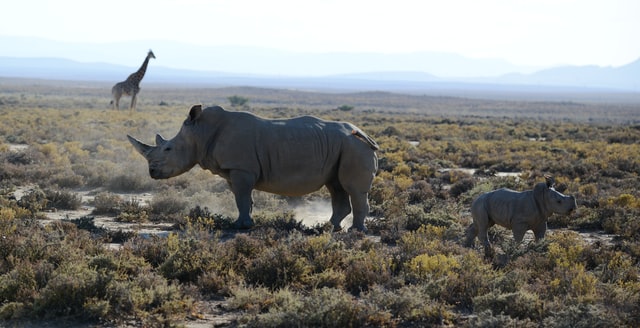
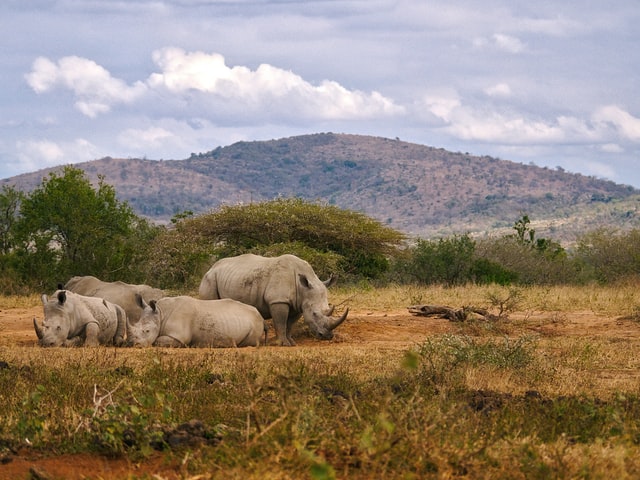
A year of successful arrests, prosecutions and convictions of transnational criminals
A number of successful arrests and prosecutions have also been recorded in the past 12 months, giving credence to the integrated work of the law enforcement agencies, including the police, the Hawks, SANParks, the Environmental Management Inspectorate or Green Scorpions, customs officials, SANDF, provincial park authorities, and the National Prosecuting Authority.
From January to December 2020, 66 alleged poachers were arrested within the Kruger National Park. A total of 90 people were arrested for rhino poaching and rhino horn trafficking outside the KNP, and more than 25 major investigations were undertaken across the country.
A special focus is placed by the National Prosecuting Authority on the prosecution of rhino and related matters in order to curb this growing transnational phenomenon. The enhanced focus resulted in a significant increase in the number of convictions and verdict cases finalised, indicating the dedication and commitment of the prosecutors to curbing this growing transnational phenomenon.
A total of 45 verdict cases was finalised with a verdict whilst 44 convictions were obtained representing a remarkable 97.8% conviction rate. The total of 44 convictions represented 69 convicted accused.
Source: environment.gov.za

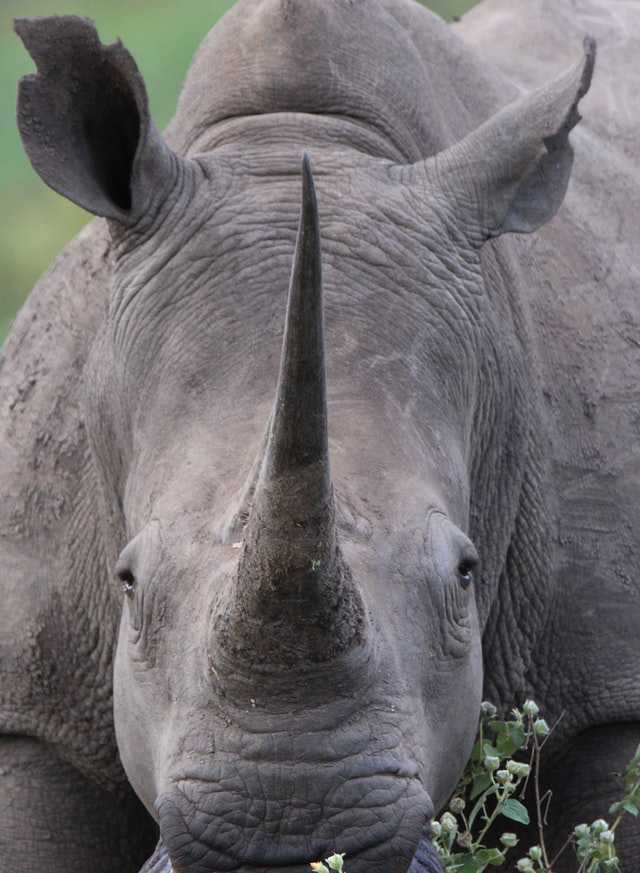
International cooperation the key to success
Countries working together on sharing of information and investigations to combat wildlife trafficking remains a key to the success in combating wildlife trafficking, even in this difficult time of COVID19. The integrated approach to international collaboration has seen the Hawks, the Green Scorpions, DIRCO, INTERPOL, Customs, US Fish and Wildlife, US Home Land Security, and the UNODC working together on various aspects of wildlife trafficking.
Within the region information sharing between Botswana, Eswatini, Kenya, Namibia, Mozambique, and Zimbabwe continues to result in positive outcomes while engagements with Vietnam have seen rhino samples submitted to the RHODIS DNA database for analyses and further investigation.
Malaysia and Singapore have also greatly assisted in several investigations and the submission of rhino horn samples to RHODIS while information sharing between South Africa, China, and Hong Kong has begun to further enhance our ability to combat rhino horn trafficking.
A press release from the Department ended:
‘While acutely aware that criminal elements within our society will continue to take advantage of the socio-economic pressures and drive demand for illegal wildlife products, the Department, working with a number of communities, NGO’s and donors, identified various community development programmes, including awareness programmes in provinces such as Mpumalanga, Limpopo, KwaZulu-Natal, and North West through the integrated strategies adopted and facilitated in collaboration with its partners, SANParks, Provinces, and neighbouring countries.’
Source: environment.gov.za
